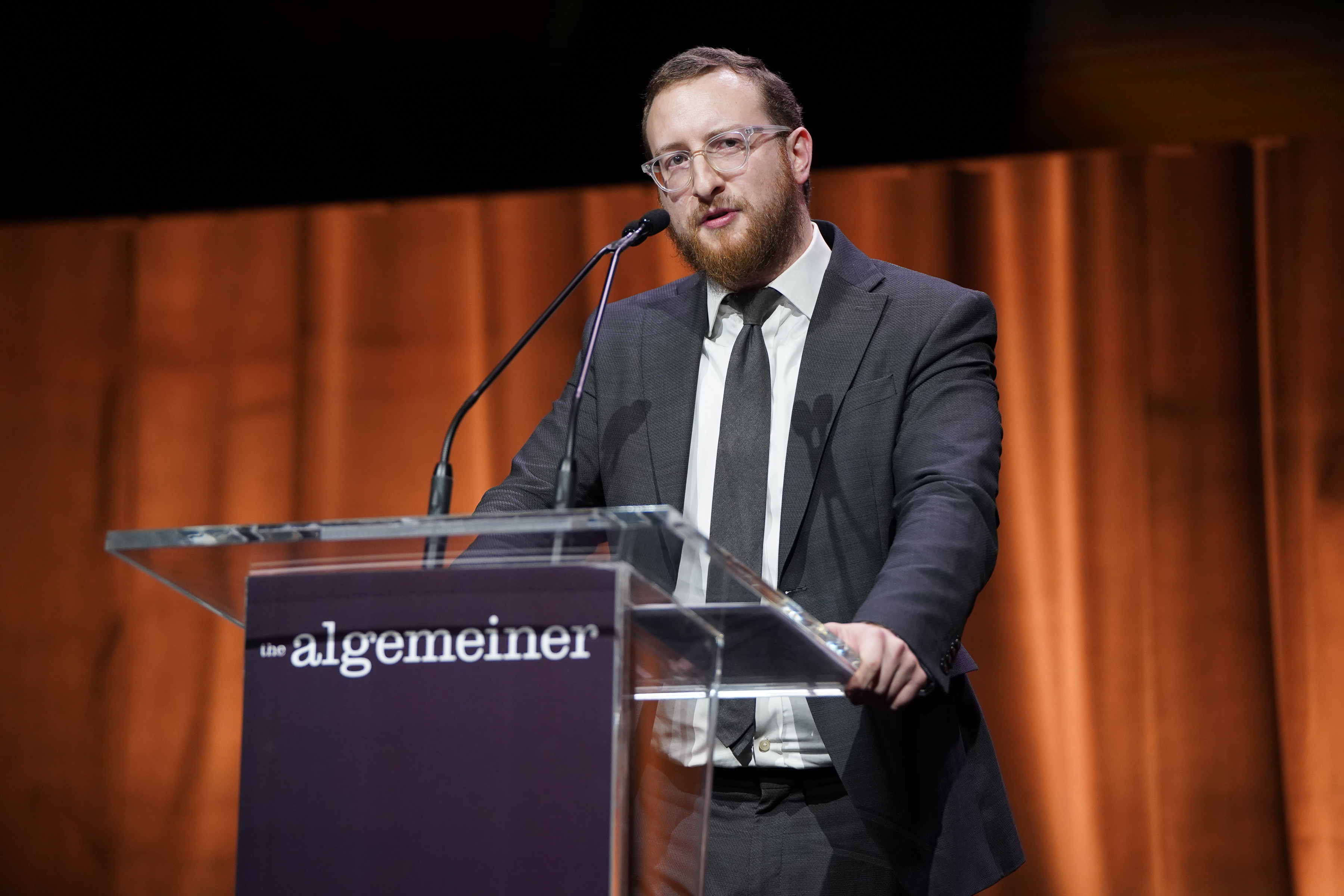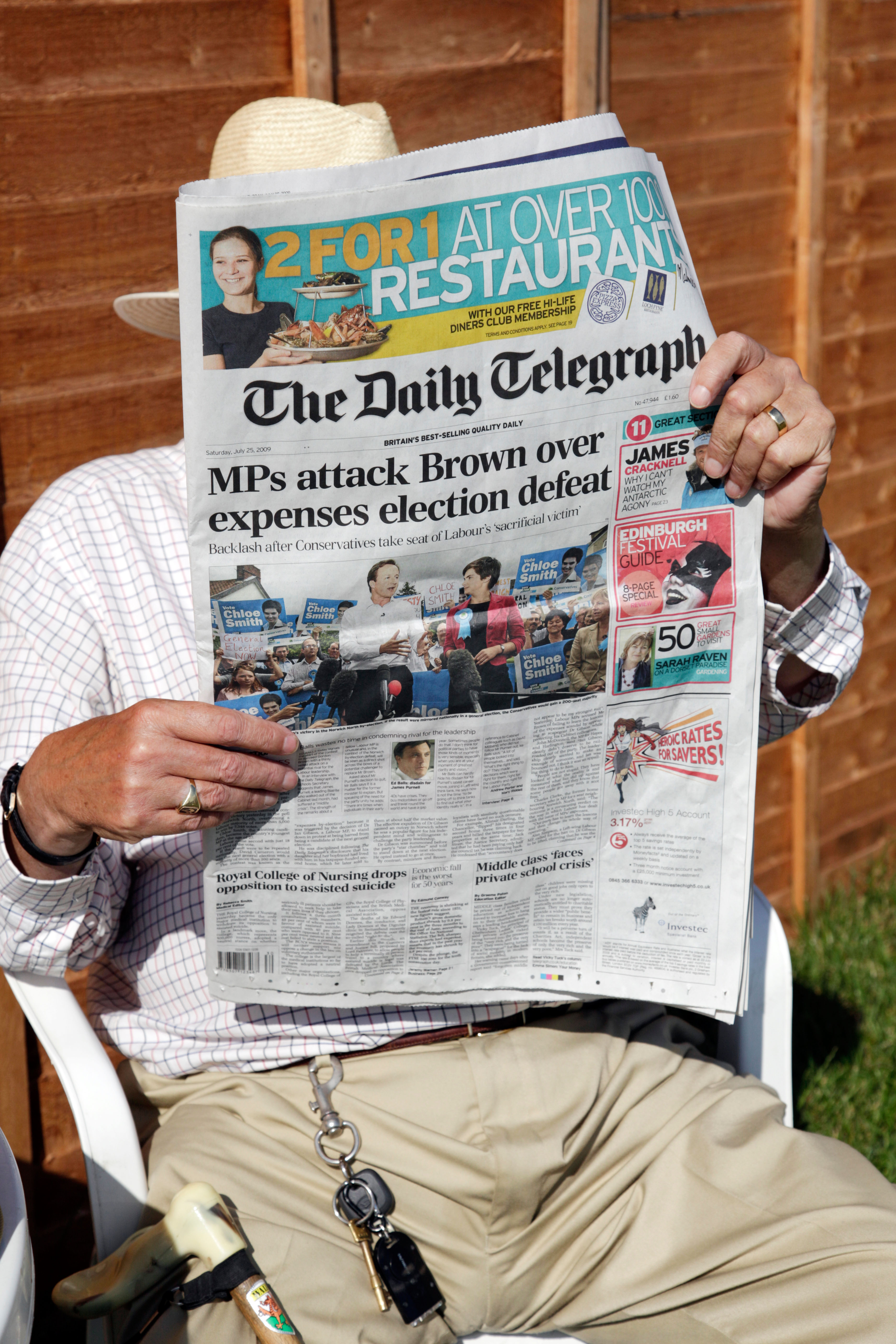Dovid Efune had managed to maintain a low profile in Britain. At least, he had until a week ago. Now he is firmly in the spotlight, his name cropping up in conversations throughout the media industry and in Westminster having emerged as a bidder for The Daily Telegraph and The Sunday Telegraph newspapers.
The British-born businessman is not new to the industry, having established himself in the media sector in the United States as the owner of The New York Sun, but this is different. The Telegraph titles are among the most prominent of Britain’s national papers and the question of their ownership has morphed from a business and banking story to a political hot potato.
Efune, 39, has stepped into this maelstrom with an approach to RedBird IMI, a joint venture part-funded by an Emirati royal, which has put the titles on the market for the second time in 12 months. The Abu Dhabi-backed vehicle has been forced to sell them after its own £1.2 billion bid was blocked by ministers, concerned about the effect of foreign ownership on free reporting in Britain. Given that he has backing from bankers said to be close with Jeff Zucker, the chief executive of RedBird IMI, he seems to offer a powerful proposition.
Little-known he may be, but Efune comes from a family firmly rooted in Britain’s corporate and political life. He was born in Manchester in 1985 and in the past has said that he had no formal, secular education after the age of 11. Instead, he attended Jewish academies to study the Torah and rabbinic traditions.
His family on his mother’s side built one of the country’s largest retailers. Peter Kalms, his grandfather, was the finance director and deputy chairman of Dixons, the electronics chain founded and led by the Kalms family, which was listed on the London Stock Exchange in 1962. Lord Kalms, a cousin of Efune’s grandfather, was chairman of the company for more than 60 years and also sat on the board of the Centre for Policy Studies, the right-wing think tank, before becoming a treasurer of the Conservative Party. Baroness Thatcher, the Saatchi brothers and Nigella Lawson all attended a party at Claridges in central London to mark the end of Kalms’ spell as chairman of Dixons in 2012.
At this point Efune was charting his path through journalism after meeting Gershon Jacobson, founder of The Algemeiner Journal, through his studies. The Algemeiner, which specialises in coverage of the Middle East, Israel and areas of Jewish interest, was a Yiddish-language newspaper when it was launched in 1972. Jacobsons’ sons appointed Efune as editor-in-chief of the publication in 2008 after the death of their father and under his stewardship it became an English-language publication.
He stepped up from the running of The Algemeiner with his purchase of The New York Sun in 2021. The daily broadsheet newspaper, with roots back to 1833, was a print publication before it was forced to close down its physical edition in 2008. Seth Lipsky, who was running the title after working at The Wall Street Journal for almost 20 years, maintained a modest online presence for the Sun after it disappeared from newsstands and then sold the title to Efune for an undisclosed amount.

Efune relaunched the brand as an online-only product the following year. Today it employs more than 30 correspondents, editors and critics, with columnists including Larry Kudlow, a former chief economic adviser to President Trump, Lord Black of Crossharbour, the former Telegraph owner, and Julie Burchill, the British author and journalist. Efune lives in New York with his wife Muskha Efune, a contemporary artist, and their children.
Lipsky said he sold the Sun to Efune because he “just seems to know how to build newspapers”. Efune, he said, was familiar with the “granular detail” of the newsroom’s operations and felt that “the best guarantee of a free press is in a healthy profit margin and sound journalism. He’s very much involved in every aspect of the paper, both the business side and the newsroom, though he defends newsroom prerogatives. He approaches the major issues strategically, the paper’s potential and its, as he puts it sometimes, ‘natural and growth audiences’.”
Ira Stoll, a columnist at the Sun who has worked with Efune from his days running The Algemeiner, described the media entrepreneur as a soft-spoken individual with a “steely inside. He both cares about the substance of the journalism, the ideas and the truth, and the business of journalism, whether a non-profit, The Algemeiner, that was reliant on fundraising, or at The New York Sun, which depends on paying subscriptions. He’s been very focused on growth and has, I think, seen some good success in both places.”
Writing in an opinion piece for the Sun in February, Efune set out his approach to journalism and his desire to focus on readers’ interests. He warned that some publications had “come to serve other masters” and noted that the Telegraph papers were at risk of falling into the hands of a foreign government. RedBird IMI’s deal had attracted criticism from politicians because it was part-funded by Sheikh Mansour bin Zayed al-Nahyan, the deputy prime minister of the United Arab Emirates. Ministers blocked the transaction by introducing new laws blocking foreign powers from owning UK newspapers and news magazines.

In his editorial, Efune wrote: “There have been newspapers acquired as status symbols by billionaires and deployed as ideological playthings. Others have been designed or repurposed as government organs. The Telegraph in Britain, a fine newspaper, is now at risk of being swallowed up by the United Arab Emirates.”
Lipsky said: “He has a keen view of the ideological contest going on in the newspaper wars today, in line with the traditions and issues that have been established and pursued on both sides of the Atlantic by the Telegraph and the Sun.”
The New York banker behind the bid who ‘knows absolutely everyone’
Dovid Efune has called in the cavalry to support his bid for The Daily Telegraph and The Sunday Telegraph, with LionTree, a boutique investment bank founded by a prolific New York dealmaker, appointed as an adviser.
Since it was launched by Aryeh Bourkoff in 2012, the firm has worked on some of the most high-profile deals in the media sector, including WarnerMedia’s $43 billion merger with Discovery. Bourkoff, 51, a former UBS banker, has been described as a well-networked operator who will pitch an idea to the right person at a cocktail party before working it up into a multibillion-dollar deal. James Lindsay, a banker at LionTree, accompanied Efune to a presentation for the Telegraph management team last week, but media industry insiders have suggested that Bourkoff is the brains behind the deal.
Claire Enders, the founder of Enders Analysis, a media consultancy, said Efune’s well-timed entry into the race for the Telegraph had Bourkoff’s “fingerprints all over it”. She said the banker was at the centre of a group of New York insiders who had been “hobnobbing for decades. Bourkoff is very much a scrappy genius and he really works the media sector incredibly heavily. His specialty is the boutique deal. He has correctly identified the absence of real competition at this stage with the Telegraph.
“Aryeh is so plugged into New York City and he will have been killing himself night and day for a year to find a way of participating in this situation in a way to generate money for himself. And this guy Efune is the one with the most money. And Aryeh knows Jeff Zucker really well, who is a really significant person in all of this.”
Lord Vaizey of Didcot, a former Conservative culture minister, worked for LionTree as an adviser until two years ago. He said Bourkoff “knows absolutely everyone. When the Warner Media-Discovery deal was under way, from all I could work out LionTree was involved in all the media deals that were getting done.
“Aryeh very much leads from the front and you will see him on the business channels regularly. He is very well-connected, very well-liked and trusted, everything you would want from a senior adviser. But he’s also built up this incredible business, as well.”
